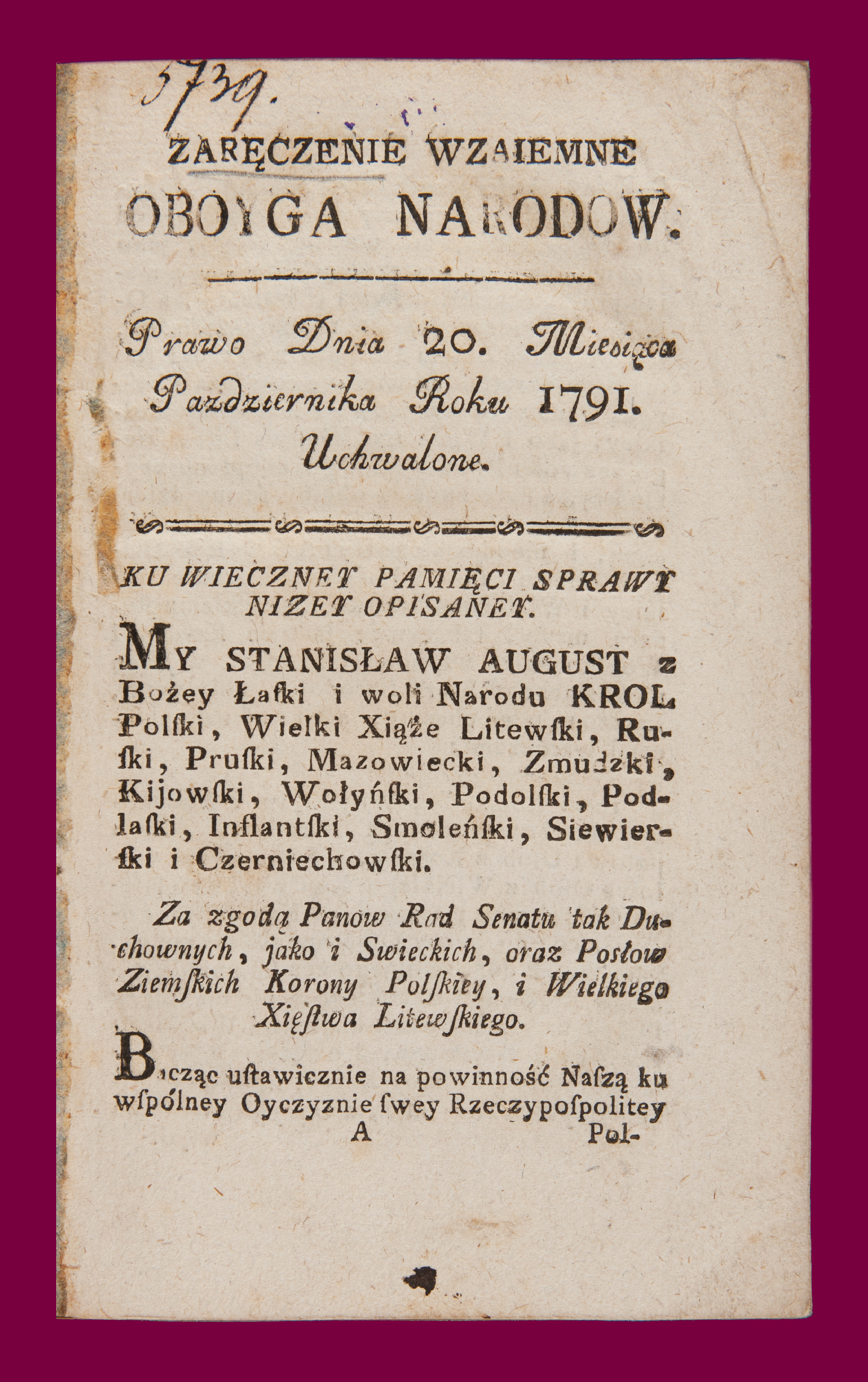The Constitution adopted on 3 May 1791 was a progressive legal document of the Polish-Lithuanian Commonwealth. It was the first constitution in Europe and the second one (after USA) in the world. With this document the political system of the country had been changed from a republic of the gentry with an elected king to an inherited constitutional monarchy. On 20 October 1791, the Lithuanian delegation in the Seym put forward an amendment, which was entitled “The Reciprocal Guarantee of Two Nations”. Thus, the Constitution reintroduced the principle of the dualism of the state. As a way to dispel the fears of the Lithuanians concerning elimination of the statehood of the Grand Duchy of Lithuania, a compromise agreement satisfying both parties had been reached and although the document speaks about the common homeland Poland, it highlights the autonomy of both nations.
We do not perceive this date as especially significant, however, at the end of the 18th century, citizens of the Grand Duchy of Lithuania were prepared to sacrifice their lives for it. The last king of Poland and Lithuania Stanisław August Poniatowski contributed significantly to the reforms and the Constitution was partly the outcome of his efforts. On 23 April 1792 the citizens of Vilnius gave Michał Kleofas Ogiński the mission to convey their appreciation to the ruler Stanisław August for the “Municipality Law” and the Constitution and assure him that “Vilnius, the city of the Jagellionians” is ready to sacrifice its wealth and life for the sake of the Constitution.

Iliustr.: The Reciprocal Guarantee of Two Nations. Adopted on 20 October 1791. S.l., after 1791 October 20; Portrait of King Stanisław August Poniatowski in a medallion on the pediment of the library's White Hall.
2021-05-03
